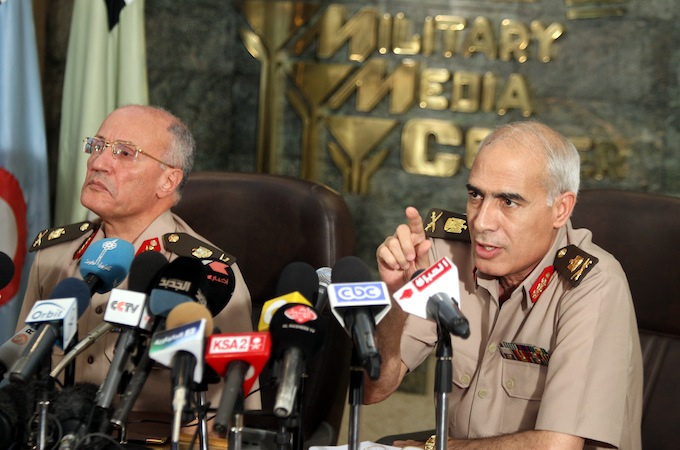By Ali Al-Bassam
Impunity Watch Reporter, Middle East
CAIRO, Egypt — As uncertainty surrounds the result of last Sunday’s presidential runoff, the Supreme Council of Armed Forces (SCAF) issued a declaration to retain the authority to exercise legislative powers until a new parliament is elected. These powers include control over the budget, and over who writes the permanent constitution. The organisation also retained the power of authority over the army, limiting the president’s power as commander-in-chief, only granting him the power to declare war with the military council’s approval.

The SCAF’s decision was made after it dissolved parliament, the majority of whose members were part of the Muslim Brotherhood. The dissolution occurred after the Supreme Constitutional Court ruled last year’s legislative polls unconstitutional because party members contested seats in the lower house that were intended to be reserved for independents.
Its actions have been met with criticism. Mohamed ElBaradei, a prominent political figure, believes they are a “grave setback for democracy and revolution.” Former presidential candidate Hamden Sabahi considers them to be “a seizure of the future of Egypt.”
Mohammed Al-Assar, a general of the SCAF, assured those concerned with the power grab that it was temporary. At a press conference, Al-Assar said “we’ll never tire or be bored from assuring everyone that we will hand over power before the end of June.” Last Sunday, the group issued a decree stating that it will retain these powers until a new parliament is elected.
It is also likely that the next Egyptian president will have a short term, and will be replaced after a new constitution is drafted. Sameh Ashour, head of the SCAF’s advisory council, said that “[t]he upcoming president will occupy the office for a short period of time, whether or not he agrees. His office term will be short despite the huge efforts exerted in the election campaigns.”
A statement issued by the SCAF said that a “constitutional commission representing all segments of society” will have three months to draft a new constitution. The organization will also have the power to veto anything in the new constitution it objects to as “contrary to the interests of the country.” The group also holds the right to form a new constitutional commission if it believes there is a setback “preventing them from performing their work.” Lastly, the declaration grants SCAF chief Marshall Hussein Tantawi “power to decide all matters within the armed forces, the appointment of its commanders, and the extension of their service.”
Yesterday’s runoff has been marred with confusion over the vote count as both Muslim Brotherhood candidate Mohammed Mursi, and former Prime Minister Ahmed Shafiq claimed victory. The Brotherhood’s unofficial tally has Mursi winning 52.5 percent of the votes. Shafiq accused Mursi of miscounting the votes, with his camp claiming that he had won with 52 percent.
The Brotherhood is critical of the SCAF’s decree, finding it “null and unconstitutional.” Ahmed Abdel-Atti, Mursi’s campaign director, expects “popular action” against the group’s undertakings in the near future.
For further information, please see:
Albawaba — Egypt: Muslim Brotherhoods Claim Presidential Victory — 18 June 2012
Al Jazeera — Political Uncertainty Threatens Egypt — 18 June 2012
BBC News — Egypt’s Military Grants Itself Sweeping Powers — 18 June 2012
Reuters — Egypt Rivals Claim Presidency as Army Tightens Grip — 18 June 2012